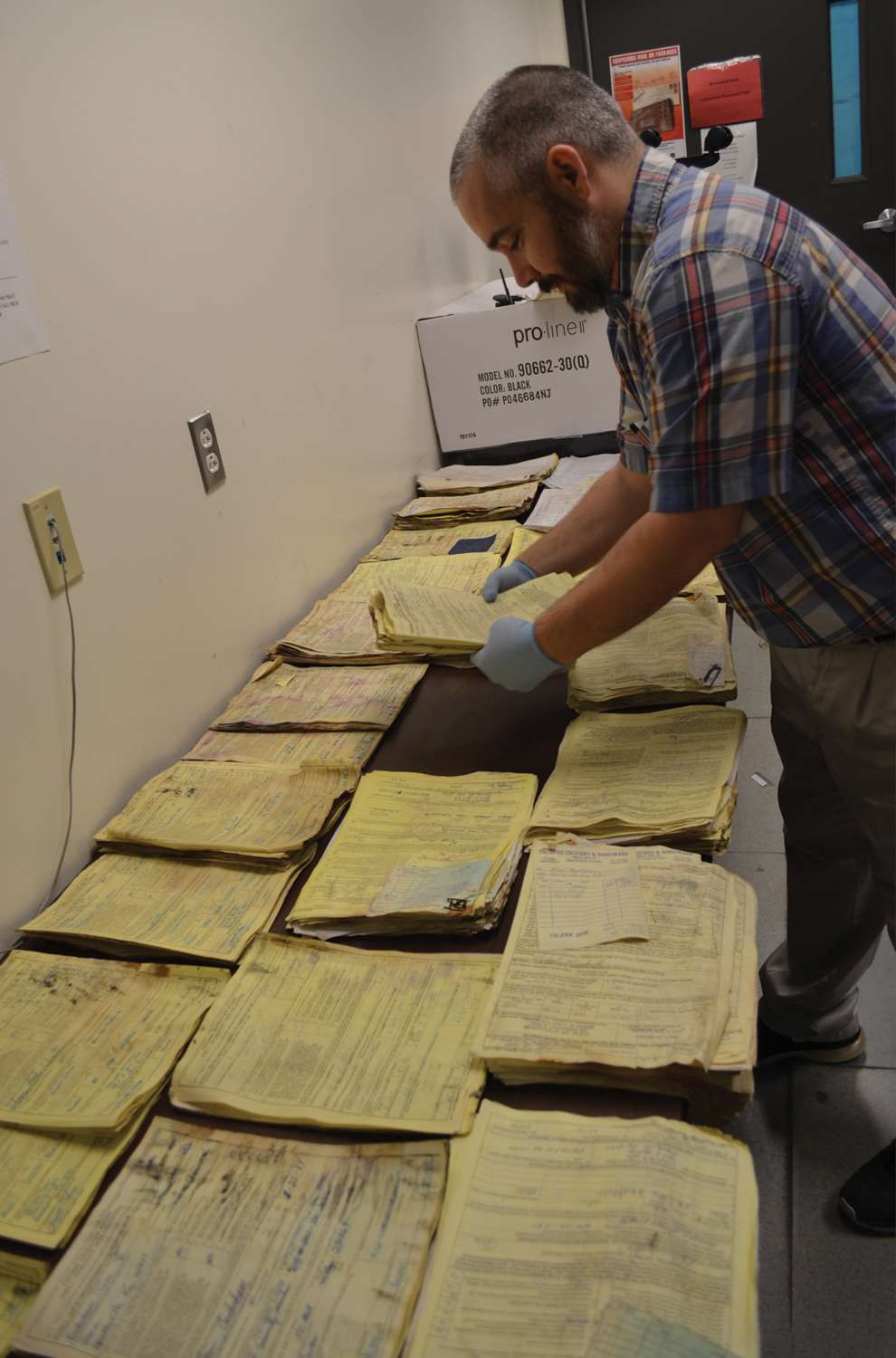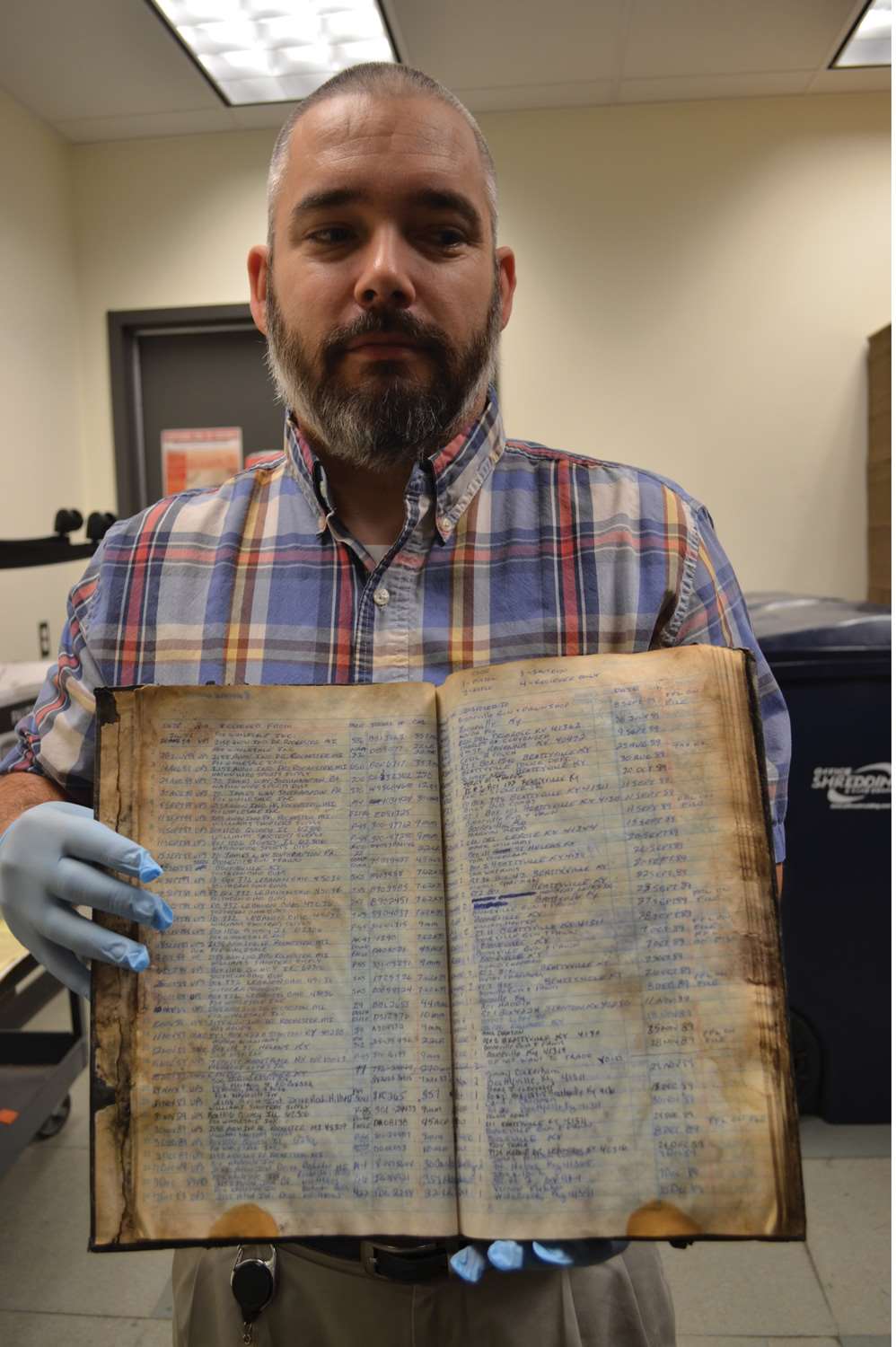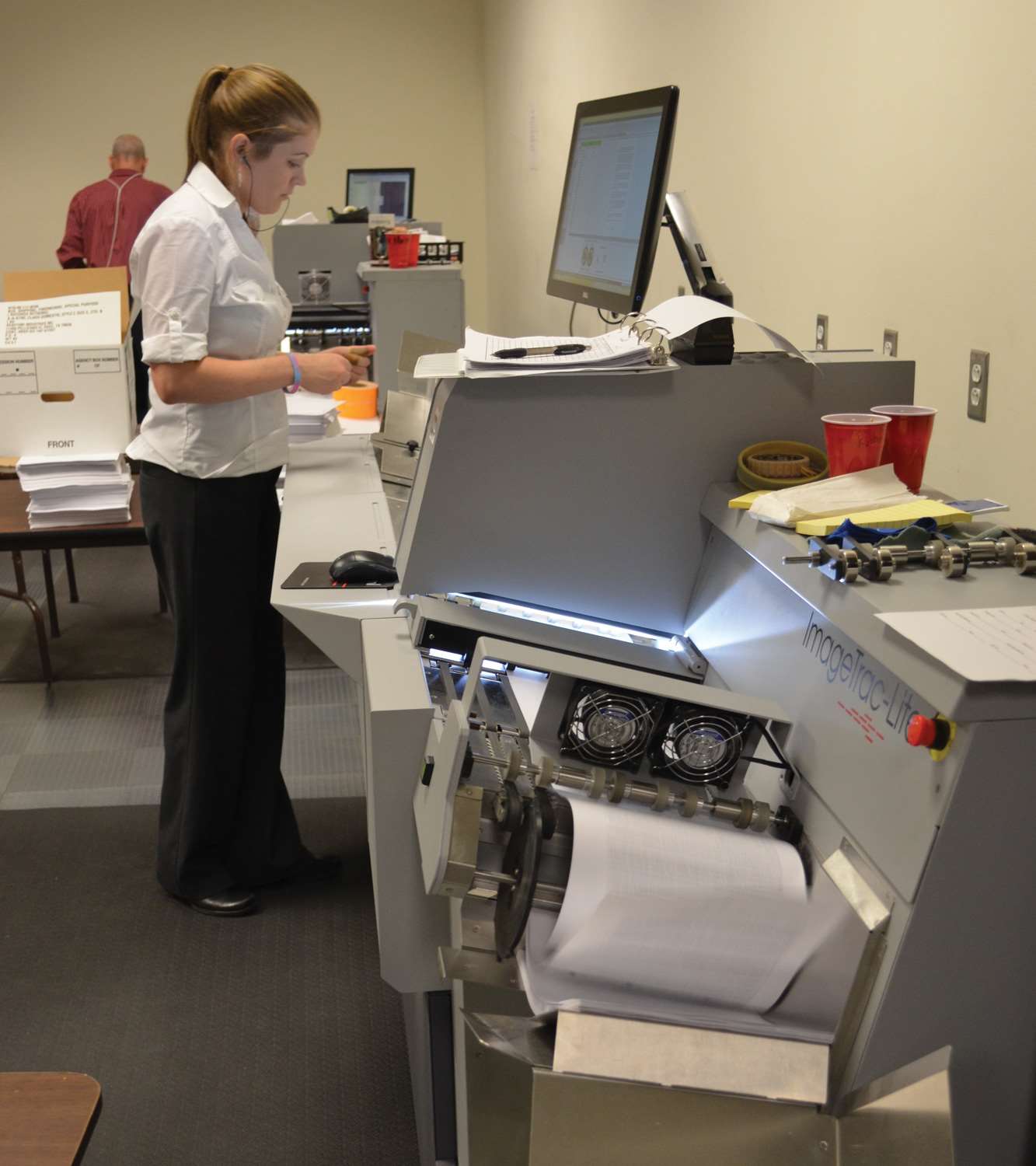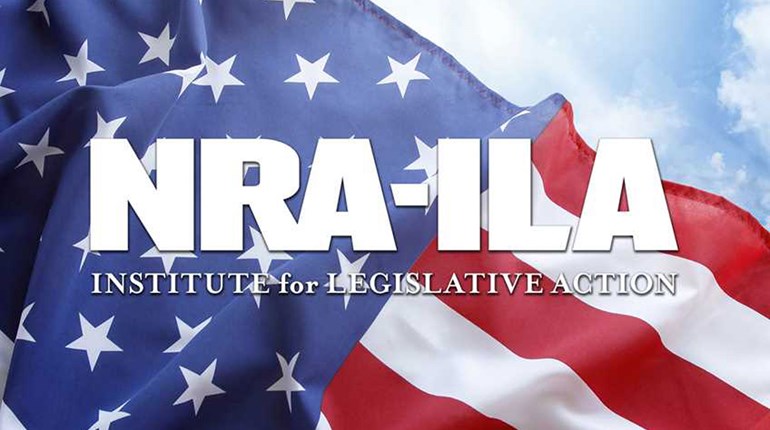
There is a building, found within a lovely panorama of farm fields and apple orchards just across the Maryland line into West Virginia, where gun stores go after death.
The building is the Bureau of Alcohol, Tobacco, Firearms and Explosives’ (ATF) National Tracing Center, located in Martinsburg, W.Va. Personnel there recently gave me a tour. In room after room of this facility I saw the ATF busily digitizing millions of gun sales records from dead gun stores. These are rooms where technicians spend five days a week, on two shifts, scanning records of gun sales. Once scanned, ATF program manager Neil W. Troppman told me, the originals are destroyed.
Boxes filled with records of gun sales from defunct gun stores seemed to fill every available space in the building. Also present were 13 steel semi-truck-sized containers in back, and more coming soon, housing even more of the records.

This building receives 2 million documents a month—up considerably from just a year ago—and there is no legal criteria for how the records sent to them must be kept. All a gun store has to do is retain a record of the name and contact information of every person who bought a gun with each gun’s model, gauge or caliber, and serial number. A gun store can keep these records in any form they choose. But, if they go out of business, they must send the records, however they are kept, to the ATF.
We stopped in front of a display of damaged records placed in front of office cubicles. “These are partially shredded and those are almost washed out from a flood,” Troppman said, pointing at the records. “Maybe it was on purpose.”
Troppman was clearly unhappy with the lack of control the ATF has with how gun stores keep and retain records.
Tacked above a glass display were a series of poster boards with hand-drawn grids on them. Some gun storeowner kept the gun sale records he or she made on these giant, glossy sheets. It was all neat and tidy, but too big for any scanner.
“I had to photograph these to get them in our database,” said Troppman.A technician took us to a table in a hallway where he had hundreds of paper documents drying. The yellow paper was moldy and damp. Troppman was shaking his head.
Troppman next showed us still more records housed on microfiche, a technology I thought faded away in the 1990s. These records are also being converted into digital documents. This would constitute an online and searchable database of all gun sales done at FFLs
“We’re creating a database we can search by gun store and time period so that if a gun is confiscated at a crime scene we can help the investigating officer determine when it was first sold and who bought the gun,” Troppman said.
Gun stores are required by federal law to keep these records. When a police officer confiscates a gun, because they found it at a crime scene or for any other reason, he or she contacts the ATF. The ATF calls the company that made the gun. The gun manufacturer looks through its records to see what gun store or wholesaler the gun was sold and shipped to. The ATF then follows this chain to the federal firearms licensed (FFL) dealer that originally sold the gun. The FFL searches its records and gives the name and contact information of the purchaser. The ATF then gives this information to the investigating officer.
Troppman was clearly unhappy that it takes all that for the ATF to trace a gun.

Troppman even said: “I was watching one of those crime dramas recently—‘NCIS’ or something—when it showed a cop using his smartphone to look up the history of a criminal’s gun. Then all this data appeared on his phone. When it was sold, who bought it … everything. People think we can do that now, but we can’t.”
He stopped there, but clearly he would like the ATF to have this ability. This would constitute an online and searchable database of all gun sales done at FFLs; such a database would, of course, also create a list of gun owners.
We walked into a room in a windowless part of the building and saw people scanning little index cards. These are gun sale records from the Winchester Arms factory in New Haven, Conn., a facility that went out of business in 2006. The ATF had to engineer a specific machine just to deal with these records—many of which are decades old.
Troppman seemed to expect us to be mystified with the daunting amount of records they have to deal with. Actually, to me, each box seemed like a metaphor for government overreach. These are, after all, records of legal gun sales, and I didn’t see how the government could keep track of 300-million-plus guns even if everyone was a law-abiding citizen doing all they could to cooperate.These are, after all, records of legal gun sales …
Also, these records will only take the authorities to the person who originally bought a gun. Such a person is likely to be a law-abiding citizen who sold the gun, traded it, had it stolen, or perhaps even passed away and his or her guns were sold with their estate. As time goes on these records must be less and less useful. Someone in the Obama administration might tell you the fix for this is the “universal background check” idea, but how is it “universal” when criminals by definition won’t follow it?
This made me wonder if the ATF’s microfiche records, and other aged records, are really worth the expense of modernizing.
Troppman didn’t want to get into that—and I’ve never spoken to someone in government who will tell you they don’t need bigger budgets and staff—but he said, “People who think we want to take all their guns are wrong. I mean how could we even do it? We have only a few thousands special agents and there are 100 million gun owners.”

Troppman explained that the records being digitized are no more searchable than they would be at a gun store. The ATF is not allowed to create a database of gun sales that can be used to create a gun-owner’s database. Basically, the records are stored as static images. They can’t be keyword searched by name or store. A technician has to search record by record as they go to the file for the out-of-business gun store and then search within some time frame.
“The Tiahrt Amendment even keeps us from sharing this information freely,” Troppman said. “All we can do is give a specific record to a police department or prosecutor that requests that document.”
The Tiahrt Amendment is a provision of the U.S. Department of Justice appropriations bill that prohibits the ATF’s National Tracing Center from releasing information from its firearms trace database to anyone other than a law enforcement agency or prosecutor requesting a specific record. This prevents gun trace data from being used, for example, in anti-gun studies and by attorneys who want to file civil lawsuits against gun makers.
In sum, it was obvious the ATF is trying to get the word out that they’re being prevented from creating a database of gun sales that can be easily searched and shared. They clearly want to get more control of guns. Seeing the piles of boxes of gun sale records at the National Tracing Center, however, just left me wishing they’d concentrate on the bad guys and not the guns.


































